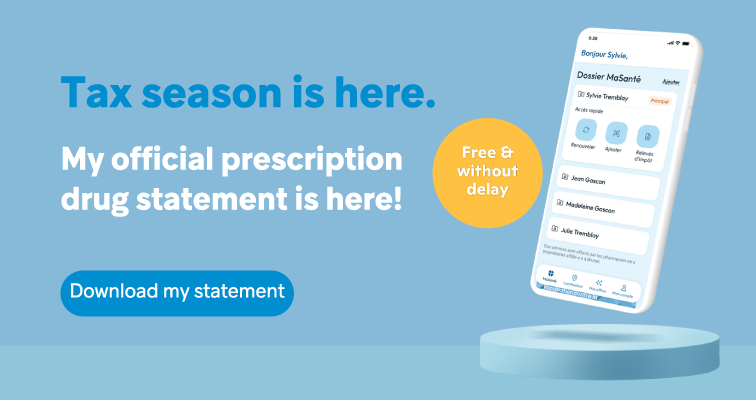The common belief that a pregnant woman should “eat for two” is not exactly true, and can be a bit confusing. During pregnancy, a woman shouldn’t eat twice as more, but rather twice as well! Learn how you and your baby can get your optimal dietary intake during this crucial period.

I eat, therefore I am
During pregnancy, the mother’s body is a shelter for the future baby. It is through her body that the infant gets the oxygen and nutrients that are necessary to his or her survival and development. A varied and healthy diet is therefore of great importance, both for the mom and the unborn child. In addition to being essential to the foetus’ growth, it contributes to a happier pregnancy by preventing all sorts of minor problems (such as morning sickness) and ensuring faster recovery after childbirth.
The recommended diet for a pregnant woman is similar to the one recommended for any other adult woman. The future mother must make sure that all of her needs in vitamins and minerals are met, whatever they are, but before and during pregnancy, emphasis is placed on specific nutrients, such as calcium, vitamin D, iron and folic acid. These are not only indispensable to a baby’s optimal development, but they are also vital for the pregnant woman. Although a varied and healthy diet is necessary to meet these increased needs, it can sometimes be insufficient; doctors often recommend taking daily vitamin and mineral supplements.
Calcium and vitamin D
Calcium and vitamin D are nutrients that work together to maintain your health and that of your baby. They are essential to several of the body’s functions, especially to ensure the development of your baby’s bones and teeth. Getting enough calcium and vitamin D daily is important throughout one’s life, but it is imperative during pregnancy. Dairy products, for example, are high in calcium and vitamin D, so you must get enough when you are pregnant. The recommended daily amount of calcium is 1,000 mg, while the suggested amount of vitamin D is 600 IU per day. Your pharmacist can tell you more about how you can meet your body’s needs in nutrients, for example, by taking supplements.
Iron
Iron is another vital nutrient; it is an essential component of the protein that is found, notably, in certain enzymes and in the hemoglobin contained in red blood cells. Hemoglobin is responsible for transporting oxygen, so women need more iron during pregnancy because of their increased red blood cell mass. Iron is also necessary to the growth of the foetus and placenta. During the third trimester of pregnancy, the baby stores reserves of iron that he or she will need during the first six months of life. Iron is found in various foods, such as red meat, poultry, legumes and some green vegetables. Talk to your health professional about your daily iron needs and how to meet them. In general, pregnant women should take a supplement containing between 16 and 27 mg of iron every day.
Folic acid
Folic acid is the most important vitamin during pregnancy. It is essential to the normal development of the baby’s spine, brain and skull, especially during the first four weeks of pregnancy. It is recommended that women who wish to become pregnant or who are pregnant take a daily supplement of folic acid in order to prevent some diseases, such as neural tube defects. Doctors suggest taking between 0.4 and 1 mg of folic acid each day. Some women who are considered at higher risk of developing these problems may have to take a higher dose, up to 5 mg per day. This can be the case, for example, for women who have diabetes, who take epilepsy medication or who are obese. Your pharmacist or the health professional following your pregnancy can tell you how much folic acid you should take before and during pregnancy.
Vitamin and mineral supplements
Many women who usually take care of their health by maintaining a balanced diet must still consider taking supplements during pregnancy. A lack of vitamins and minerals can lead to health problems, but too much of them can also have the same result. You must take an appropriate dose of vitamins and minerals, so always follow the recommended daily dose. In addition, don’t forget that not all supplements on the market are suitable to pregnant women; you must choose a product specifically made for pregnancy. This should be clearly indicated on the label. Among other things, these products contain the right amounts of calcium, vitamin D, iron and folic acid. Seek the advice of your pharmacist or the health professional following your pregnancy to choose the supplement that is right for you.
A few tips
If you are pregnant and want to provide your baby with the best possible diet, follow these tips:
- Follow the guidelines in Canada’s Food Guide.
- Eat a lot of fruit and vegetables every day.
- If you have cravings, plan ahead by filling your refrigerator and pantry with your favourite healthy foods.
- Avoid beverages and foods that have no nutritional value, are high in calories and low in nutrients, such as soft drinks, chocolate, chips and junk food.
- Don’t go on a diet while you are pregnant. It is normal and desirable to gain weight during pregnancy. Don’t worry; you’ll lose the weight after your baby is born. You can prevent excessive weight gain, however, by eating to your satisfaction while still making wise food choices and adopting a healthy lifestyle.
When your baby finally arrives, you’ll want nothing more than to provide him or her with the best of everything to make sure he or she grows up happy and healthy. Start doing so during your pregnancy by offering your baby a high-quality diet and all the right conditions to make him or her a true wonder of nature!
